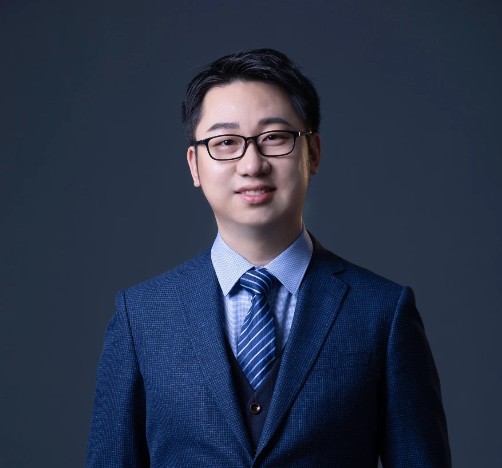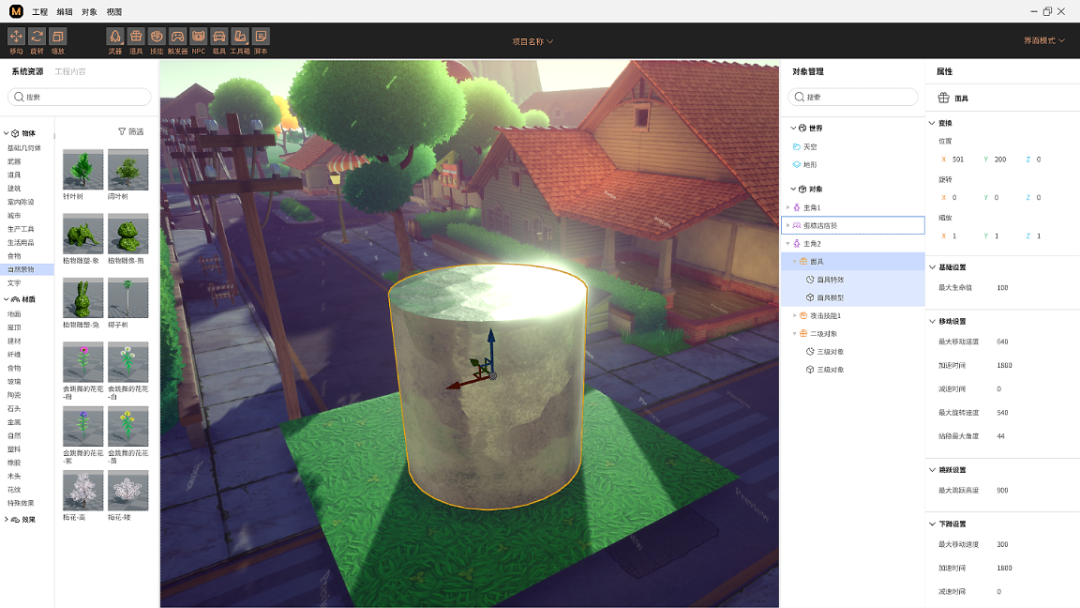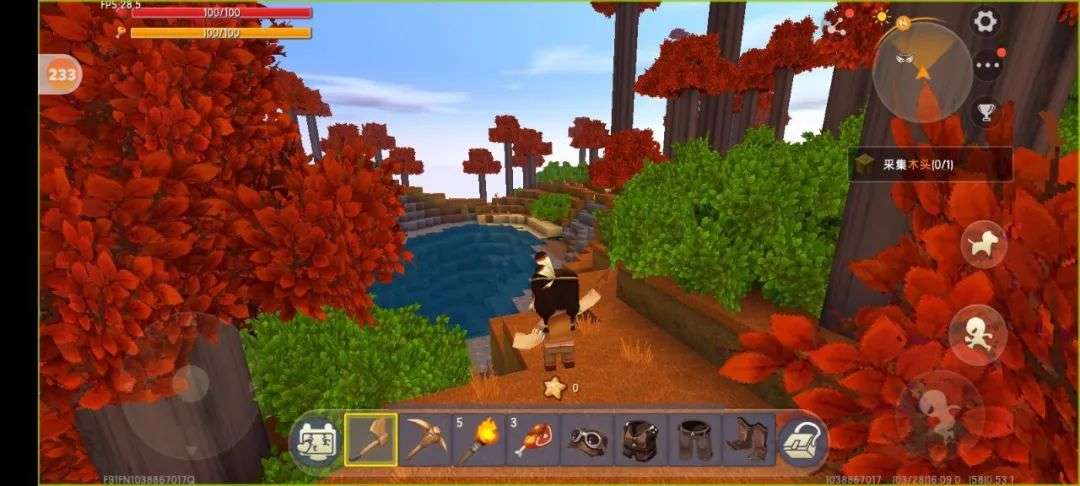Choose an unconventional path.
Editor’s note: This article is from the micro-channel public number “game Grape” (ID: youxiputao), Author: according to the optical flow.
Recently, the concept of Metaverse has become popular.
After Roblox went public overseas, the game industry also began to pay attention to this field, and to relax the concept, it seems that Tencent, NetEase, Mihayou, and Lilith are all doing projects with similar concepts.
At this point, this month, a domestic company called MetaApp received a US$100 million Series C financing led by SIG Heiner Asia Capital and co-invested by its founding partners CCV and Yunjiu Capital. It became a domestic company. The case with the highest amount of financing on the Meta Universe Track.
Grapeman learned that the nearly two rounds of financing planned by MetaApp will be mainly used for team building and expansion. This year, it is expected that the team size will increase from 360 to 800-1000, focusing on high-end products, R&D, UE talent and so on.
Capital’s follow-up to popular concepts is as fast as ever, but some practitioners believe that the meta-universe represented by Roblox is more like a traditional sandbox game, and the “oasis”-style meta-universe in “Ready Player One” is too far away. , This concept may go the old way of VR games again.
And what I am curious about is why the capital is so optimistic about MetaApp, and the investment amount is much higher than that of other domestic teams (currently the same track cases are mostly millions of dollars), and why this team is viewed by major manufacturers To be a strong opponent? In addition, according to reports, CCV, an old shareholder of MetaApp, commented that its “pre-judgment of the ultimate form of Metaverse is of great forward-looking value.” How can this prediction be forward-looking?
I had a conversation with Zhou Zhewu, the co-founder of MetaApp not long ago. Surprisingly, their plan to realize the meta-universe is indeed different from the general perception of the game industry, and it can even be said to be the opposite. And do it. And this strategy is based on their early accumulation of continuous entrepreneurship and their judgment on future development.
Continuous entrepreneurship, continuous success
In 2011, Hu Sen had not founded the later MetaApp. During his Ph.D. study at Yale, he chose to drop out of school and return to China to start his own business. At that time, he had a keen interest in operating systems and networks, especially virtualization technology and synchronization delay elimination technology. It was also out of this interest that he discovered the pain points and opportunities of the streaming media industry.
MetaApp founder Hu Sen
After returning to China, he founded Yuncheng Interactive and received over 10 million U.S. dollars in venture capital from IDG and Morningside Capital. After starting their business, they self-developed Web P2P technology to provide streaming media distribution solutions to video websites. At that time, the bandwidth cost of video websites was very high. This technology successfully reached cooperation with more than a dozen video websites, and Hu Sen also earned the first pot of gold in starting a business.
After this, Hu Sen and several founder teams intend to continue to rely on their own technology to expand their business to the C-side, so the goal is to smoothly shift to the newly emerging live broadcast industry. Due to the accumulation of technology, the advantage of Yuncheng Interactive’s live broadcast is that the CDN cost is 90% less than that of the regular team, so this has become their entry point, and the business is getting bigger and bigger. In 2015, the Octopus tv under Yuncheng Interactive was acquired by LeTV Sports for 300 million yuan.
In the process of expanding the live broadcast business, several co-founders of Hu Sen also worked on another project at the same time: games. Since 2012, they saw the opportunity for Flash to do 3D, so they tried to make several games, including the more successful “Creation of Soldiers”.
“Creation of Soldiers”
This game is based on 4399 and focuses on 3D FPS gameplay. Since most of the Flash games at that time were mainly 2D, “Creation Soldiers Soul” quickly came to the fore and reached one million DAU. However, the game’s revenue has not been very large, which left regrets in the hearts of the team. At the same time, it also made them think about why the platform-based games did not make big revenue? Solving this question became the starting point for Hu Sen and his team to start their next steps.
In 2016, Hu Sen once again chose a new track to start a business and tried the 233 series of products in the direction of game aggregation platform, which is the predecessor of MetaApp. They found that the core pain point of the aggregation platform is the waiting time for users to start the game. From a technical point of view, it is a problem of network speed. “When we first launched in 2017, we found that everyone’s mobile phone network speed was too slow, which greatly affected the experience.”
To solve this problem, theyThe gameplay of red envelopes is used. The familiar saying in the industry is the online earning model, but Zhou Zhewu understands it somewhat differently: “The essence of red envelopes is to allow users to accept internet speed and wait. Just like we heard many years ago. Songs and videos are listened to in MP3 after downloading from Baidu, but now the internet speed is fast. We all listen to cloud music online and watch online movies on video sites.”
MetaApp co-founder Zhou Zhewu
The extension of this idea is that they choose the core logic of the game aggregation platform: “If the internet speed is fast enough, if 5G is fully popularized, everyone does not need to download the game in advance.”
Zhewu Zhou told me that when they actually operate, they can clearly feel everyone’s demands. “Now there are a lot of domestic mini games, and many products have tens of thousands of daily activities, but they are scattered in various corners of the industry, such as app stores, WeChat applets, etc. But if you use the traditional promotion model, such as Douyin information flow Launch, the product will definitely die, because LTV won’t come back.”
The role of the aggregation platform is to rely on the traditional distribution model to increase its own traffic, and then distribute the traffic and income to different levels of mini games. The fact is the same. As of the end of 2020, MetaApp has achieved 200 million activated users and more than 1 billion distributions through several years of accumulation, and the annual growth rate of DAU has reached 300%.
In the past 10 years of entrepreneurial history, Hu Sen and his team have basically stepped on the pain points of the industry, and relied on technology and judgment to seize the opportunity. This is the fundamental reason why they can continue to succeed in their business and the top capital is rushing. .
“Game industry, one should come out
There are platforms like Douyin and Station B”
While operating the red envelope model, Zhou Zhewu gradually felt that there was a problem with the production capacity of the game industry.
“On the one hand, the version number has squeezed the space for small-scale games. On the other hand, the industry has entered the era of big mergers, and talents are getting closer to individual big companies. We have talked with many cooperative teams and found that everyone’s life is very sad. Especially casual games.” Zhou Zhewu split this phenomenon into three structural problems:
First, the product title is not clear. Choose a product that is already popular, that isFighting who can copy quickly; choosing feelings, there is no guarantee that the direction must be right.
Second, the team organization has gone to extremes. In the era of big mergers, the heavy game R&D team at one extreme is less than 50 people, and as many as a few hundred people. There may be only one or two people.
Third, the cost structure restricts game development. To make traditional games, you either need to raise money or save money. Those who can raise money are either powerful producers, main strategists, art, programs, or publishers who can play traffic. However, more people are basically unable to start a business to make traditional games, and the cost threshold limits more people’s game creativity. This phenomenon is unreasonable.
Based on these three pain points, the MetaApp team began to think about its next step, as well as some more essential issues.
Every game player pursues 3A, and the pursuit is popular, but the bosses don’t think so. Even if everyone’s ideas are good, they may invest a lot of costs out of R&D, art, production, and topic selection. But did a loss-making business. At this time, everyone’s career may be interrupted, so can you lower the barrier to entry and increase the success rate?
Just as when they started their business, they solved the video bandwidth cost problem and the live CDN cost problem. This time they judged: “When every product in this industry is fighting alone, the scattered thousands of products have tens of thousands of DAUs. At the time, it means that this demand is very clear, so our logic is: in the game industry, it is time for a platform like Douyin and Station B to come out.”
So last year MetaApp began to try to change its strategy.
On the one hand, they removed the red envelope model and started to do recommendation algorithms. The reason is that the network speed problem has been solved, and the red envelope mode has naturally lost its effect. After the game can be played immediately, the recommendation algorithm is equivalent to a guarantee for the product, so that no one cares about the team to disband.
On the other hand, they set out to develop an editor for MetaApp. Due to the structural problems of the industry, it is easy for gamers to frustrate their careers and fail to get their ideas. Then the MetaApp platform with traffic has the opportunity to transform the supply chain. Once the transformation is done, most of the structural problems in this chain can be solved. has been solved.
MetaApp editor main worldFace
For them, to make a UGC/PUGC game platform similar to station B, there are three core problems to be solved: topic selection, team and threshold, and server cost.
First of all, the solution to the topic is easy to find in Zhou Zhewu’s view. The mechanism is to establish a mature algorithm. “Because we can see the user’s data, we also know which theme, which tag, which search term has good data, so we can find the key points through the algorithm, and we can establish a project with the R&D team.”
This is indeed an advantage for platforms that rely on algorithms such as Douyin and Kuaishou. “For example, there was a very good category in Kuaishou for cooking, similar to the question of how to make braised pork. Users liked it very much and searched frequently, but there was no good person to make videos. Obviously just take out the cook who cooks braised pork. Art videos, the number of broadcasts will not be bad. Our strategy is the same, helping people with abilities to make games that will be popular with a high probability.”
MetaApp is best at technology. They have also invested in algorithms such as in-depth models and real-time models. Similar levels of investment are rare in the industry. This set of algorithms is also the foundation of MetaApp.
Secondly, they use an editor and shared code model to ensure that the R&D team can get started quickly. “On the one hand, we can write a lot of code, and the R&D team should not write it; on the other hand, many basic gameplay codes can be reused for the industry as a whole, freeing up more energy for theme innovation and gameplay creative extension.”
“The game industry is not like the Internet. A lot of code is not open source. Why? In fact, the business model is restricted, because everyone makes their own games. But from the perspective of the platform, we can let everyone divide the work. Some people do Basic gameplay, some people make basic materials, and some people make basic values. Everyone can get profits, and the platform will distribute them.”
At present, the editor of MetaApp has been developed for more than half a year. In Zhou Zhewu’s idea, the editor can save at least 80% of the workload, and some games do not require 100 people to do it together, but two or three. Individuals, even one person can do it.
Finally, in terms of server and mic and other costs, MetaApp also used its own bank to cover the expenses in this area, which also eliminated the problem of the team’s inability to bear this part of the cost and the need to finance. Enter the cycle that no money can’t do.
“In this way, we can transform from a traffic platform to an upstream and downstream ecosystem for the entire production line.” These ideas do not simply stop at the level of ideas. In fact, MetaApp has attracted more than 1,000 development teams. , And there are many products that have outstanding revenue performance.
“Mini World” is also an important player in the meta universe
“The core competitive element of making editors is cold start. Developers are not difficult to find, and it is difficult for developers to make money. Roblox was established in 2004 to the beginning of 2016, and it has not reached the threshold until recently. There has always been traffic and money is being made, so the problems of monetization and cold start have naturally crossed over.”
However, Zhou Zhewu feels that MetaApp’s current performance is still in its early stages, and it “can be several times bigger” in the future. The reason is their own judgment of the “meta universe”.
An anti-traditional “meta universe”
At the beginning of the period, I, like most practitioners, believed that the attributes of MetaApp were more casual games, too far away from the concept of meta-universe defined by most people, but when I threw this question to Zhou Zhewu, His answer surprised me a little.
“Our goal is to open up people who don’t play games. We pull the data ourselves and find that the core users of MetaApp are people who don’t want to serve heavy games, such as middle-aged women, including my mother-in-law. The user overlap rate of heavy game platforms such as Jiuyou is only 1.5%.”
The reason why the content of the current platform is more focused on small games and casual games is that, on the one hand, it is because in the past to solve the point-and-play network speed problem, small casual games are more suitable for this mode, on the other hand, traditional The heavy game model is too gamified and does not meet the needs of the target population they want to expand.
“If you want to draw more people from the existing game crowd, you can’t rely on typical games.” Zhou Zhewu showed me an internal demo segment, in which players can manipulate characters to walk around in a beautiful natural environment , You can watch the scenery everywhere, and the realism of the scenery is of high quality: “This seems to be just a scene, but my wife can accept this form of game.”
In his opinion, the current games are too emphasizing on winning and losing, fighting, because users of these games can make manufacturers enough to make money, but for more mass users, they just come in to experience and go shopping. “Especially Pay to Win games are too gamified. If we make a fight and kill game, many people will not accept it. My mother-in-law is the first one, and my wife is the second one.”
“But games are easy to make people really fragrant. For example, my wife told me not to play games at first, and then she fell in love with “Guangyu” and especially liked the experience in it. “Guangyu” isProducts that are more social and experiential. These types of products are also what we have to focus on in order to open up the crowd. That’s why we choose to focus on the meta-universe field that emphasizes more social and experience. “
In fact, MetaApp has already seen signs of this trend early.
For example, there is an exclusive product called “Sakura Campus Simulator” on the platform, where players can decorate their rooms, change clothes, and share their designs with others. Although the product quality is not as good as the first-line masterpieces, and the routines of traditional heavy games are not seen, but without any official promotion, this game has already harvested nearly 5.2 billion video views on Douyin.
“Sakura Campus Simulator”
Many players will share their experience of decorating rooms, remodeling rooms, or shooting sitcoms or series, which attracts a large number of users. This may be a market that the traditional game industry does not care much about, but for MetaApp, users’ demands are already huge enough.
“The reason why we don’t use the word game is because the impression of the game is too solid, but we want more people to come in and feel the atmosphere of these experiences and social relationships. You don’t have to fight and kill, go Milk tea shops and going to Tianjin can all be a common experience for users.”
However, Zhou Zhewu mentioned that in order to realize their meta-universe vision, the product form similar to “Sakura Campus Simulator” is still relatively rudimentary. In the past, the products accumulated during the online earning period were mostly based on moderate games. Obviously, it was not enough to satisfy this diversified demand: “Many contents are not novel enough.” So the main challenge for MetaApp now is the establishment of a content library.
To build a content library, on the one hand, MetaApp’s own team must be strong enough.
Currently, there are 360 people in the MetaApp team, more than half of them are product developers, most of whom serve the development of algorithm engines and editors. Next, MetaApp plans to attract UE talents to build its own resource library for development. It can solve 80% of the repetitive development work of most teams.
At the same time, through Unreal Engine Unreal’s own technical solutions, more R&D teams have been able to raise the product limit: “Everyone is painful once. There is no need for every studio and team to step on the engine’s pit. We have suffered, the industry will No more pain.”
In addition, there is another layer of thinking to attract UE talents, which is to break the limitations of traditional game production. “To open up people who don’t play games, you must play games with a new perspective. Those who have been dealing with high-quality and strong technology for a long time are more likely to get rid of the traditional design ideas of the industry.”
So, MetaApp’s $100 million round of financing, including the last round of unused tens of millions of dollars, will be mainly used for the next talent accumulation and team expansion. This year they also plan to increase from 360 people Expand to the scale of 800-1000 people.
On the other hand, the creation of a content library is also inseparable from the creation of developers.
The editors, resource sharing, and code sharing mentioned earlier are all to lower the entry barrier for developers and release their energy to the creative level. The introduction of UE talents is also to broaden product production ideas and allow developers Can be made out of routines, but can attract the public experience game.
For the founding team of MetaApp, it is their original wish to make games that can release their creativity. “In the past, the game could not be confirmed. It was a small number of people who chose to fight and kill and excessive gold for their own fun. But if the game can give 99% of people a part of happiness, sense of accomplishment and recognition, this matter is completely It’s different.”
“Sakura Campus Simulator”
In addition, in order to prevent developers from entering the in-volume competition in the traditional game industry, MetaApp also plans to adopt a business model of “resource sharing-revenue apportionment”, so that revenue can be voluntarily participated and does not affect the market share of popular authors. At the same time, it can benefit more resource producers and the upstream and downstream links of the industrial chain. At present, MetaApp is still formulating detailed rules with the improvement of the editor, and may come up with specific plans soon.
Zhewu Zhou told me that the establishment of the entire content library will take about two to three years to complete. In the second half of this year, MetaApp will launch its own model room to concretely present their own ideas. Next year, they will begin to scale up, and everything has just begun.







